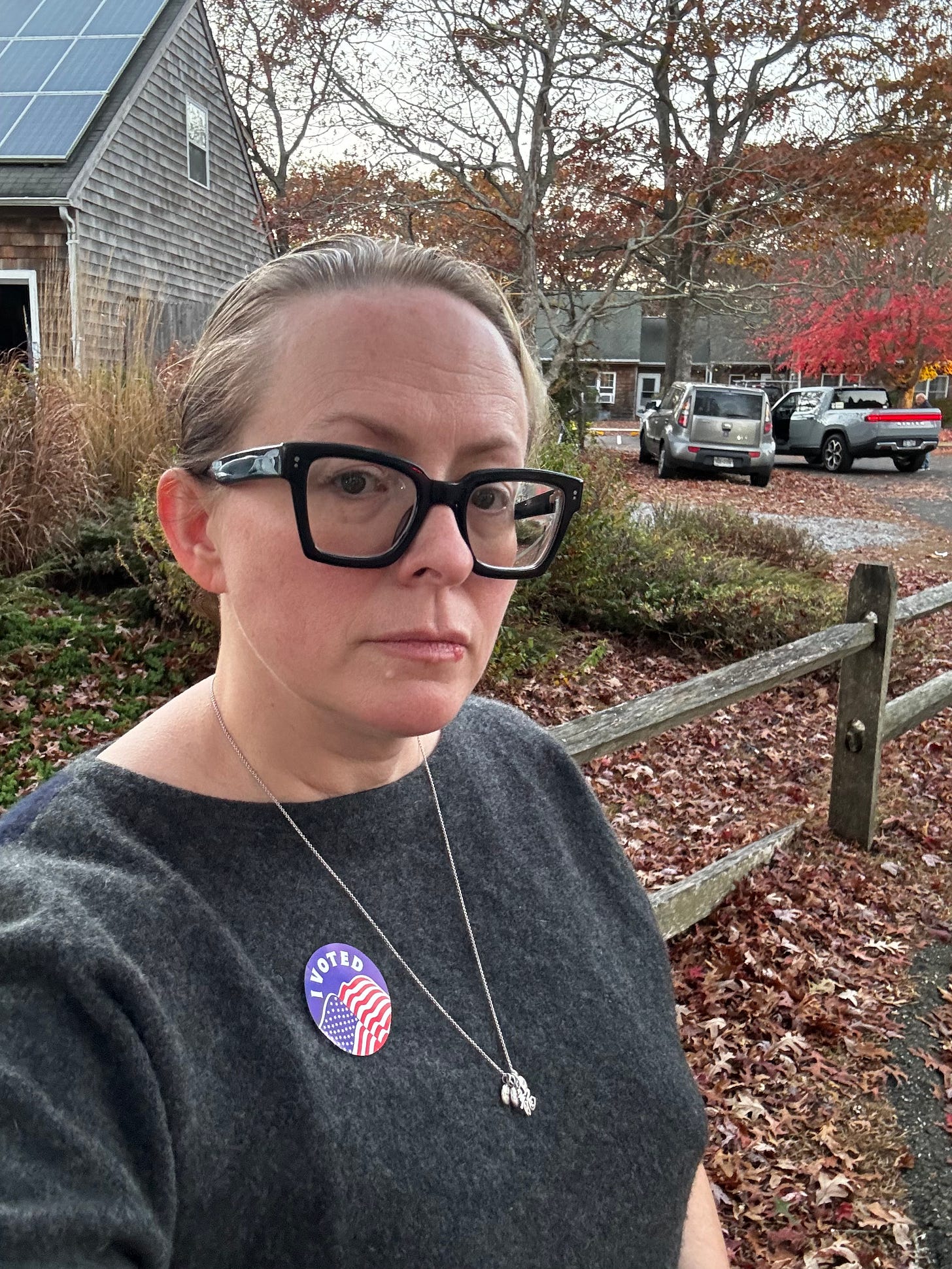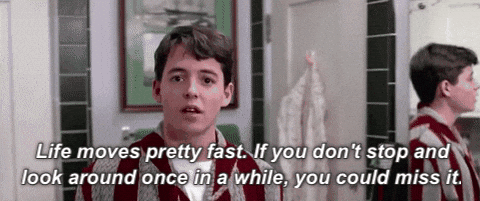Episode Recaps and Looking Ahead
What we've been up to leading up to Election Day — and what we'll be up to after
Since I last sent you updates we’ve recorded and published a few episodes, and I wanted to make sure you knew about them. So this will be a brief round-up of our most recent episodes, then a little preview of what’s to come.
Episode 22: The Gen Z Gender Gap and Other Polling Stories, with Professor John Sides of Vanderbilt & Good Authority
There are a lot of ways that particular poll results become fixations of the media, pundits, forecasters, and others. This cycle, there have been concerns about a perceived gender gap between Gen Z men and women, the importance of knowing all of Harris’ policy positions for voter choice, among other cross tab diving follies. I spoke with John Sides, co-founder of Good Authority about some of his recent writing on what we should make of these polling trend pieces, as well as possible futures for more informative polling of the electorate.
Also on Spotify:
Episode 23: Only the Good Poll Young, with Anil Cacodcar of the Harvard Youth Poll
Anil is the student Chair of the Harvard Public Opinion Project, and leads the Harvard Youth Poll. We talked about the history, evolution, methodology and philosophy behind this poll, how media consumption is changing how young voters in particular get information (and how long it might take for a “major news event” to filter through), and a lot more. I can’t tell you how much fun I had talking to Anil — super thoughtful and insightful, and I am going to take him up on an invitation to visit the Harvard POP student staff.
Also on spotify:
Episode 24: Hit ‘Em Where it Hurts, with Dr. Rachel Bitecofer
Last, but absolutely not least, is the latest episode, which we published on Halloween (scary season!). In this conversation, Rachel "The Doc" Bitecofer 📈🔭 and I talked at length about what the political science and polling of the last couple of decades tell us about effective political messaging strategy under conditions of negative partisanship, what’s at stake in this election, and why message testing your way to a successful political strategy is a fool’s errand. In the parlance of Jonathan V. Last, “Good show, long show”.
I also have to commend to you her substack, The Cycle, available here:
I spent a lot of time editing this one because we were having way too much fun, and I have to tell you, it left me hopeful about the election and about what comes after (whatever that will be). It’s straight talk, describing things as they are and not as we wish they were, and that always makes me feel better: when we tell the truth about the way things are, we can figure out how to fix things.
Oh and here’s the spotify:
What’s next?
Well, this project is not over. I have some great interviews lined up for future episodes. I’m working on a piece reflecting on what I’ve learned about polls and polling over the past 8+ months of interviewing experts and reading all about methods and theory. When I launched this project, the tagline was this:
No hot takes. No spin. No punditry.
Just the polls.
And I stuck to that throughout. Even my conversation about negative partisanship strategy with Rachel Bitecofer is not punditry — it’s political science and strategy.
But here’s what else I discovered as I talked to the experts:
The electorate and our politics are changing rapidly. Demographics may not be destiny. Regional factionalism may be growing. Fascism may be rising. Big Structural Change may be growing in popularity. The realignment/dealignment period we’re in is concluding, and what the parties will look like in the next two to four years may significantly differ from how they look today.
This means that the electorate as it is may be undertheorized. That means that the models of likely voters that inform polling and the forecasting of how states will go in the Electoral College are wrong and getting wronger. If they’re lucky (and that might mean we all get very unlucky), they’ll be close enough to right to save face this cycle. But after that, in my opinion, all bets are off.
It’s not just the political theory that’s in need of updating though, it’s the polling methods, too. When regional factionalism, demographic alignments, and party affiliations are relatively stable, you can do small-sample national surveys of 1000-1500 people and have them be reasonably accurate. But if Ann Selzer is right, and Iowa could swing for Harris (or be close to a tie), if North Carolina goes for Harris, if it’s close in Florida, if Allred beats Cruz, if the New York 1st Congressional District goes for Harris and Avlon (as just a few examples), then things have changed enough for national polls to undergo a more fundamental evaluation than questions solely about sample representativeness.
Here, then, is the revised fundamental question of Cross Tabs:
How do we understand each other as a body politic, at scale?
To answer that question, we have to go beyond polls. We have to understand the structures that influence our electoral outcomes and shape our perceptions of our role in a Democracy, like the Electoral College itself. We have to develop more local knowledge of how populations and places are changing. We have to think more about the consequences of our political choices than about the odds of one party or another prevailing.
So that’s what the show will continue to be about. To do this, we may occasionally veer outside of academia and political polling and check in with my friends on the market research side to understand how cultural trends and norms are changing in people’s everyday lives; we may talk to more strategists, more lawyers, more writers.
And I may include more episodes talking to normal people, too. I’m thinking through what that project might look like, and how to fund it. But I’ll let you know as that unfolds.
Elections aren’t the end of what we need to know to have a functioning democracy. They are incremental decisions about the fate of the republic, not final decisions. So, we carry on.
I’ll send another post the day of the election, and I’ll try to record a short episode as soon as we have a declared winner.
It’s not too late to volunteer for a campaign, by the way. I voted on Friday, and then I knocked doors in my neighborhood yesterday and it felt good to give people the information they needed to get to the polling place, know what was on the ballot, and have their voices heard1.
I hope you have a plan to vote. And if you’re a pollster, strategist, analytics pro or simply a voter, I want you to know how much I appreciate your work, your thinking, and your investment in the Democratic project.
See you on the other side.
I’m bad at reading the campaign’s scripts, but I’m really good at making people feel like I’m just checking on them and making sure they have what they need and support them. I think it surprises people to have someone just show up that way. Not for me, the questions of, “Do we have you down for a vote for Harris?” Instead, “Do you know how to get over to the early polling location? Do you have a ride to the high school on Tuesday? Did your mom get her ballot? Do you want Spanish-language materials to share with your family?” I think parties should do more community care-taking to offset the extractive nature of campaigns. I digress! But I do it in a footnote.





